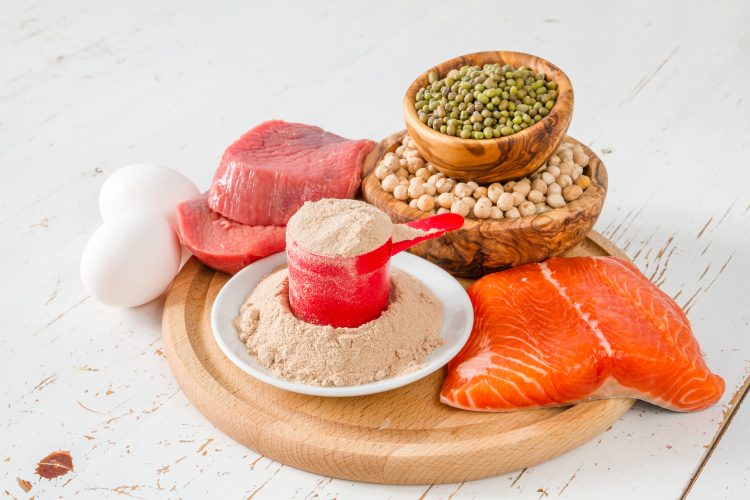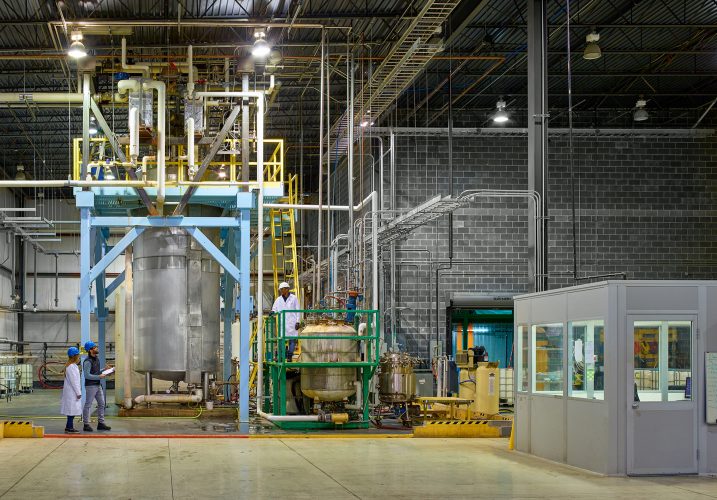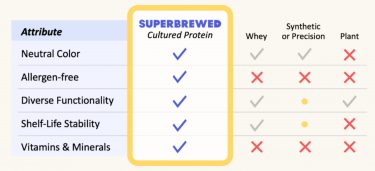Brewing up a superb protein
- Like
- Digg
- Del
- Tumblr
- VKontakte
- Buffer
- Love This
- Odnoklassniki
- Meneame
- Blogger
- Amazon
- Yahoo Mail
- Gmail
- AOL
- Newsvine
- HackerNews
- Evernote
- MySpace
- Mail.ru
- Viadeo
- Line
- Comments
- Yummly
- SMS
- Viber
- Telegram
- Subscribe
- Skype
- Facebook Messenger
- Kakao
- LiveJournal
- Yammer
- Edgar
- Fintel
- Mix
- Instapaper
- Copy Link
Posted: 15 April 2022 | Bryan Tracy | No comments yet
People’s appetite for protein has evolved, with many consumers turning to plant-based alternatives for at least some of their meals. Here, Superbrewed Food’s Bryan Tracy talks about the perks of anaerobic fermentation.


While fermentation has been around for centuries, modern science has discovered a way to culture specific microbes to produce new ingredients that are beneficial to human health. This has created a growing category of fermentation-enabled alternative proteins, fuelled by the demand for sustainable, (major) allergen-free, plant-based foods.
A new protein
Just as beer is made with yeast (a microbe) and grains through anaerobic (without oxygen) fermentation, we’ve used a similar process to produce the world’s first anaerobically cultured protein.
Superbrewed Cultured Postbiotic Protein is ‘brewed’ from starch, using a proprietary process to harness the power of a microbe found in nature that Superbrewed’s scientists identified as a ‘protein specialist’, meaning it is highly efficient at converting plant fibres into protein.
The nutrition that fuels us doesn’t just come from the food we eat, but also the food that’s converted by our gut microbiome into the nutrition we absorb. To find our protein specialist we looked at the microbiomes of some of nature’s powerful herbivores – for example, gorillas, elephants, horses and cows – who are extremely efficient at converting the plants they eat into protein to build muscle. In this process, Superbrewed Food identified the ‘middleman’ – a specific microflora that effectively converts plant starches into proteins.
Using these bacteria, we discovered a completely new type of protein that is not an animal protein and performs better than whey, pea or soy protein nutritionally and in some functional uses.
Moreover, because Superbrewed is cultured from microflora, it actually provides postbiotic benefits, similar to how yoghurt cultures provide probiotic benefits. The key difference is that our coproduct is butyrate, which is a postbiotic. When bacteria in our gut (probiotics) metabolise the starches we eat (prebiotics), that generates short-chain fatty acids (postbiotics). Butyrate is a potent postbiotic that has important gut-healing properties, reducing inflammation and potentially also improving metabolism.
Even though it is not a genetically modified ingredient, Superbrewed Food Cultured Postbiotic Protein has gone through rigorous regulatory testing, particularly focused on food allergens.
The resulting data showed no adverse effects and a low risk of major food allergen cross-contamination.
Alternative protein fermentation
There are three categories of alternative protein fermentation; the Good Food Institute1 offers the following descriptions of them:
- Traditional fermentation is the process of changing a food through microbial anaerobic digestion
This is how beer, wine, yoghurt and cheese are made. For alternative protein production, traditional fermentation can be used to improve the flavour or functionality of plant ingredients, as is the case with tempeh, a fermented soybean product. - Biomass fermentation uses the high-protein content and rapid growth of microorganisms to efficiently produce large amounts of protein-rich food
In this application, the microorganisms that reproduce in this process are themselves ingredients for alternative proteins. For example, Quorn grows filamentous fungi via fermentation to use as the primary ingredient in its products. - Precision fermentation uses microorganisms to produce specific functional ingredients
The microorganisms are programmed to be ‘little production factories’. This is how insulin for diabetic patients is produced, as well as rennet for cheese. Precision fermentation enables alternative protein producers to efficiently make specific proteins, enzymes, flavour molecules, vitamins, pigments and fats.
The perks of anaerobic fermentation
The beauty of anaerobic fermentation is the speed with which it enabled us to move from lab to scale.
Upon further investigation, the process is strikingly similar to that of beer brewing. We combine our proprietary microflora with starch, plus two salts, at which point it is then anaerobically fermented for less than a day. After fermentation, it is simply washed and dried, leaving a whole food protein powder that is minimally processed to preserve the extra nutrition, beyond protein.


SUPERBREWED FOOD
Our ingredient delivers 80 percent protein by weight and contains naturally superior levels of essential vitamins and minerals, including a full day’s supply of B-12, along with iron, phosphorus, magnesium and folate. In terms of protein quality, it is complete in amino acids for adults, has all nine essential amino acids, including 20 percent higher branched-chain amino acid content than plant-based proteins, which helps stimulate muscle protein synthesis and decrease soreness after a workout.
“Our ingredient delivers 80 percent protein by weight and contains naturally superior levels of essential vitamins and minerals”
Compared with the animal proteins it can replace, our postbiotic protein has a 75 percent lower carbon footprint and uses 60 percent less water. Our production process is also very efficient, achieving a near 50 percent weight conversion of sugars to products, which is extremely high for the industry.
Cultured postbiotic protein is remarkably versatile and can be used across everyday food applications. It has a neutral taste with a natural white colour, which reduces the need for masking or colouring. It also has excellent pH and temperature stability, so it does not clump in hot foods or beverages, or when cooking. Additionally, it can serve as an emulsifier, so it lends a creamy and smooth texture to foods and has low water activity that extends shelf-life stability. This makes it an excellent candidate for an alternative dairy ingredient that also provides functional benefits in foaming, emulsification, colour, texture and inclusion levels.


Proprietary information of Superbrewed Food Inc.
Due to the scalability and stable supply of our cultured protein, it is also affordable, particularly compared with the cost of other protein ingredients.
Several companies are already working with Superbrewed Cultured Postbiotic Protein in their innovation pipelines, in categories ranging from alternative dairy to baked goods.
Introducing Superb Fuel
The first consumer product made with our prized postbiotic protein is Superb Fuel for Performance, a ready-to-drink protein shake that will be available in late 2022. An eight-ounce bottle contains 33 grams of protein in only 170 calories and naturally delivers (without fortification) an excellent source of vitamins B6 and B12, iron and riboflavin, along with other minerals such as selenium and manganese.
What makes Superb Fuel stand out is that it provides the highest level of protein per ounce without being thick or chalky tasting. Furthermore, it is not whey-, soy- or pea protein-based, so it appeals to all consumers looking to fortify their diet with protein while having a clean label.
References
- https://gfi.org/fermentation/
About the author
Bryan Tracy is the CEO and Co-founder of Superbrewed Food, a nutrition and health company focused on the development of natural ingredients for both humans and animals based on a proprietary anaerobic fermentation process. Prior to Superbrewed, Bryan was the Co-founder and CEO of Elcriton, a synthetic biology and biotechnology company, which was later acquired in 2014 by White Dog Labs (WDL). Bryan’s technical expertise is in chemical engineering, microbial engineering, molecular biology, bioprocess development and scale-up. He has published 16 peer-reviewed scientific articles and is an inventor of more than 45 granted and pending patents. Bryan received a B.S. in chemical and biomolecular engineering from North Carolina State University and a PhD in chemical and biological engineering from Northwestern University, where he was an NIH Biotechnology Fellow.
Issue
Related topics
Processing, Proteins & alternative proteins, Technology & Innovation









